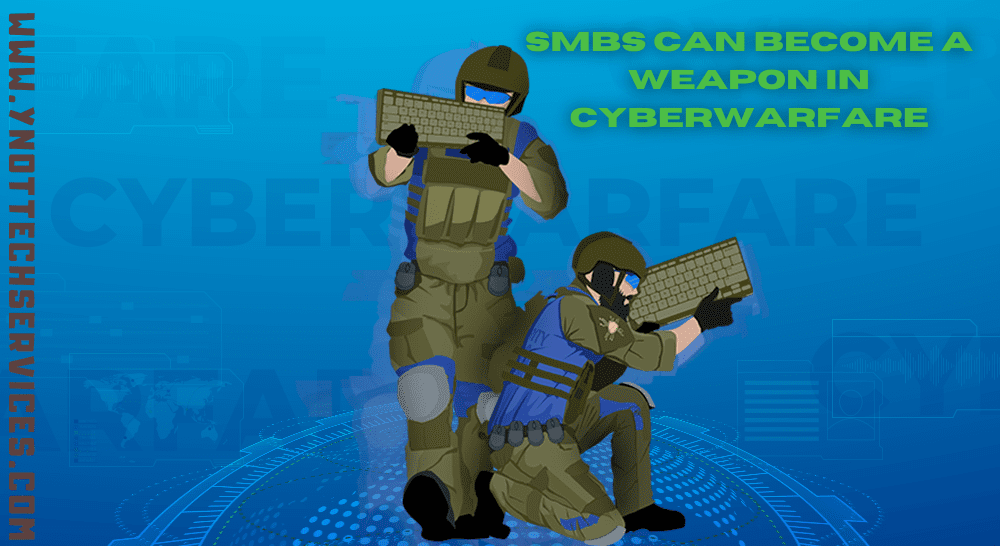SMBs Can Become a Weapon in Cyberwarfare
Headlines today highlight Ukrainian tragedy or North Korea testing missiles. It can seem far away from your business, yet battles are being fought online, too. Your small business’s IT systems could be weaponized for cyberwarfare.
That statement may surprise you. You’ve heard of cyber targets such as:
- critical national infrastructure;
- election and voting organizations;
- military databases;
- government communication outlets.
In the days preceding Russia’s attack, 70 Ukrainian governmental organizations were hacked. Messages in Ukrainian, Russian, and Polish warned people to be afraid and expect the worst.
But, why would someone want to target your small business as part of their cyberwarfare? You may be only a stepping stone to help the attackers achieve their larger goal.
How your business can become a target
You could be the victim of a supply-chain or leap-frog attack, or you might have a business partner who is also an accountant to a defense contractor, or your business might be providing heating and air conditioning maintenance to a utility. That connection makes you interesting to hackers.
Attackers use you as a pawn in digital warfare. They expect you have fewer defenses than the highly funded end target, so they infect your network to facilitate their attack. They might send a fake invoice from your business to the target, one that is laden with a malicious payload. The client, trusting your credibility, opens the malware. From there, the attacker has access to the information they were seeking from the outset.
How to shore up your defenses
Increase your cyber vigilance. Don’t think that you are too small to be a target. Instead, create and maintain a cybersecurity plan. Follow best practices to keep your systems resilient, and ensure you have the proper protection in place.
This type of attack often leverages software vulnerabilities, so make sure that all your systems are up to date and patched, leverage antivirus tools, and stay current on the latest threats you should protect against.
Also, remind your employees about the importance of good cyber hygiene, the humans who work for you are often the weakest link. They don’t mean to cause any damage, but they click on that phishing email or go to that website with malware downloads embedded.
Multifactor authentication can also help you combat hacker access. Even if the bad actor does get a user’s credentials, they still need an approved device to get in. This makes it much more difficult to compromise your network.
It’s also a good idea to establish ongoing monitoring of any security events and install remote access controls. Geo-fencing can restrict certain foreign IP addresses, and Certificates can validate trusted computers that remotely access your systems. Then, use the data from those tools to identify any suspicious activity.
A managed service provider (MSP) can help with any of these defense tactics. We don’t want to see you turned into an unwitting weapon in someone’s cyberwarfare. Contact us today to learn more about what we can do to help reduce your attack surface.
Book an appointment today:



